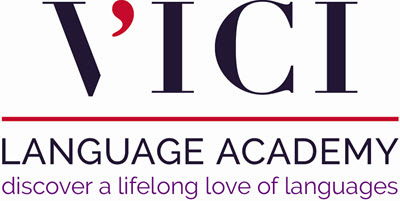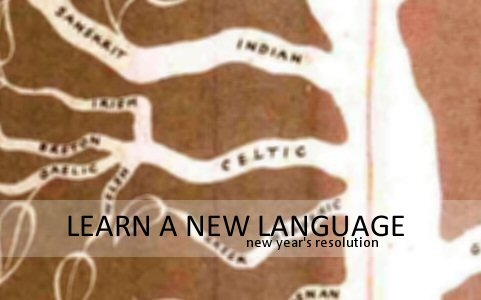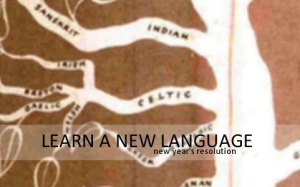January’s now upon us which means most people are planning their resolutions as the Christmas festivities end and a clean sheet presents itself in the form of a new year.
As well as getting fit, losing weight and ditching the alcohol, learning a foreign language is in the top ten most common resolutions.
At The Vici Language Academy we see a 20% increase in enquiries in January with the most common languages being French, English as a foreign language, German, Spanish and Italian.
Our Director, Nathalie Danon-Kerr has written a list of her Top Tips to start learning in the New Year.
Here are my top tips for learning a language:
1. Find out what kind of learner you are:
Everyone learns differently. Some people learn better when they see something written down, others like to hear something several times; some language learners like to learn the grammar rules by heart. I recommend using a variety of strategies including books, listening to recordings, rehearsing dialogues, watching videos, playing games and learning vocabulary to practise the different skills of listening, writing, speaking, reading and spoken production and interaction (the most important yet missed by so many traditional language courses!). Remember: It is proven that you are 67% more likely to remember something if you have gone through the process of writing it down.
2. Work at your own pace
I recommend studying in half hour segments (if and when you study on your own), but not trying to do too much at once. Have regular lessons, supplemented by practice. You should vary the task according to your mood; for example, if you are tired, try a less demanding task such as repeating activities. If your concentration is waning, try reading a foreign language magazine article about a subject that interests you.
3. Never give up!
Remember that it is possible to communicate with just a few words; don’t get disheartened if you feel you are not making progress as when you get things wrong, you are still learning!
4. Improvise…
Sometimes you need a word that you don’t yet know. I always assure learners that every language learner has been in this position and if you can communicate by facial expressions, hand movements or props, you will build up confidence and will maintain the conversation. Extend this technique to tenses as well; if you don’t know the past tense of the verb, then use the present tense, plus the word “yesterday” so that people will understand the gist of what you are trying to say.
5. Guess!
You aren’t expected to understand everything first time round so use clues such as tone of voice, words that sound similar to English (eg ‘vacances’ in French sounds like vacation in English).
6. Keep speaking…
I recommend recording yourself speaking, particularly when doing pronunciation practice. When you listen back, evaluate your performance and don’t worry about mistakes. Keep practising!
7. Vocabulary
Take just two words at a time and learn them. (Remember Noah’s Ark… Two by Two…?!) Put them into sentences in your mind and come back to them later.
8. Get the right tools
A bilingual dictionary is useful to help translate new words and expressions. Choose a dictionary that gives plenty of information on usage through illustrative examples to help guide you through the contexts it can be used it. Advanced learners may like to have a foreign language thesaurus to help them build vocabulary. It’s also helpful to build your own dictionary using an index book. Don’t clutter your brain with words you might never use!
9. Get used to hearing everyday language at normal speed
Watching foreign language films and TV is a good way of getting used to sounds and intonations. I recommend watching the news or a programme that reflects your own interests so that you learn the language quickly and effectively.
“Learning a language is an on-going process so it’s vital to make it as enjoyable as possible. Remember that a fluent language speaker is a beginner… Who never gave up!”
All the best!
Nathalie Danon-Kerr
Academy Director
PS: Language programmes in French, Spanish, German, Italian, English as a second language, Turkish, Arabic, Mandarin are available, with Dutch becoming available for the first time from January 2015.
PPS: You can now learn online too with our new online platform i.vici! More details coming VERY soon!



Getting to know what kind of learner you are will certainly help you in your language studies. If you find that one method of teaching is not letting you progress, test different methods and add it to your list of study materials. Writing and speaking are also important elements of studying language. Doing so will certainly help you connect yourself with the language better and will build your confidence in using the language at any given time.